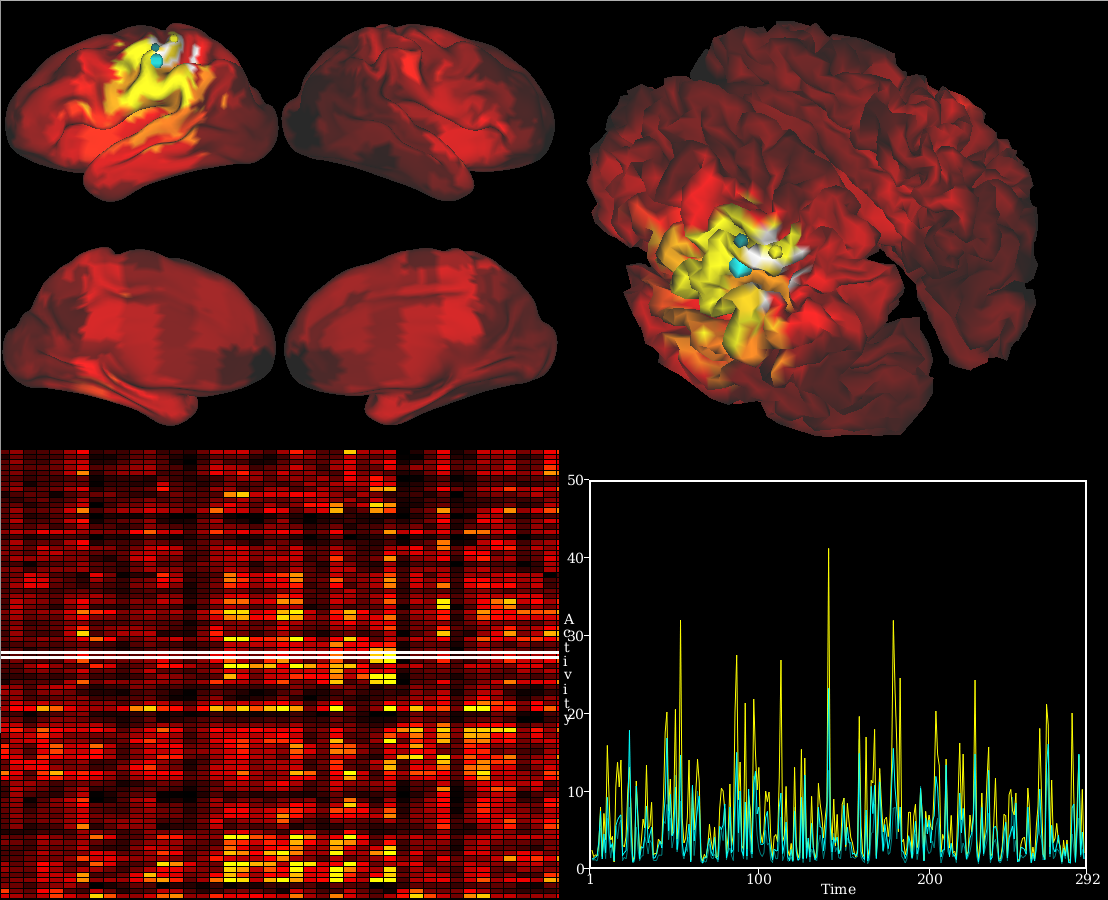- >>
- Healthy Adult Studies
- HCP Young Adult
- News
- Article
New MEG Data Released as Update to the 500 Subjects Data

The Human Connectome Project (HCP) WU-Minn consortium is pleased to announce the release of new MEG data as part of the 500 Subjects +MEG2 update.
What’s in the HCP 500 Subjects + MEG2 data release? This release adds new high-quality MEG data (including source-level processed connectivity data) to the 500 Subjects behavioral and 3T MR imaging data released in June 2014. Included are resting-state MEG (rMEG) and/or task MEG (tMEG) data from 67 subjects in unprocessed, channel-level processed, and source-level processed packages, plus behavioral and 3T MR imaging data from 542 healthy adult participants collected in Q1-Q6+. MRI and behavioral datasets from 15 MEG subjects that were not in the original 500 Subjects release have been added.
Updates for the 500 Subjects + MEG2 release:
- High-quality MEG scans (unprocessed, channel-level processed, and source-level processed) from 67 subjects, including over 30 individual complete datasets with resting state (rMEG) and each of the three task protocols (tMEG: motor, working memory, and language processing).
- Structural MRI-based MEG anatomical models for all subjects for which MEG data have been released.
- Behavioral and demographic data on 542 subjects, available for viewing in the ConnectomeDB dashboard or for download as comma separated variable (.csv spreadsheet format) files.
- Updated versions of the megconnectome pipelines software.
- Source-level MEG results can be viewed interactively on surfaces in wb_view, the Connectome Workbench viewer.
Multiple-levels of MEG processed data available. The MEG data released (67 subjects) includes the raw data in 4D imaging format and the outputs of a number of data processing pipelines.
The utility pipelines include quality control and artifact identification to remove “bad” channels, segments, and physiological artifacts, and an anatomy/source reconstruction pipeline to coregister the MEG to structural MRI (sMRI) and dMRI.
The resting-state and task Channel-level (preprocessing) pipelines result in sets of components obtained from ICA together with the related classification into artifacts and non-artifacts, cleaned and segmented data with channel-level Event-Related fields (ERFs), Time-Frequency responses (TFRs) and power-spectra.
The Source-level pipelines project the sensor maps from rMEG and tMEG channel-level processing into source space, produce rMEG ICA-based frequency specific connectomes, and produce rMEG Band Limited Power dense timeseries and connectomes.
Access 500 Subjects + MEG2 data on the HCP website. Explore, download, or order the HCP 500 + MEG2 Subjects dataset (~20TB of data!) via the ConnectomeDB database. Most HCP image and behavioral data is openly accessible to investigators worldwide who register and accept a limited set of Open Access Data Use Terms. Note: Please clear your browser cache before logging in to ConnectomeDB.
Want more information? Check out the HCP 500 Subjects + MEG2 Release Reference Manual for a comprehensive guide that includes details on imaging protocols, behavioral measures, and information that will help users obtain and analyze the 500 Subjects + MEG2 data.
If you are actively using HCP data and tools, we encourage you to join and be active in the hcp-users discussion group (http://www.humanconnectome.org/contact/#subscribe), so that you can tune in to technical discussions on issues that may be of interest.